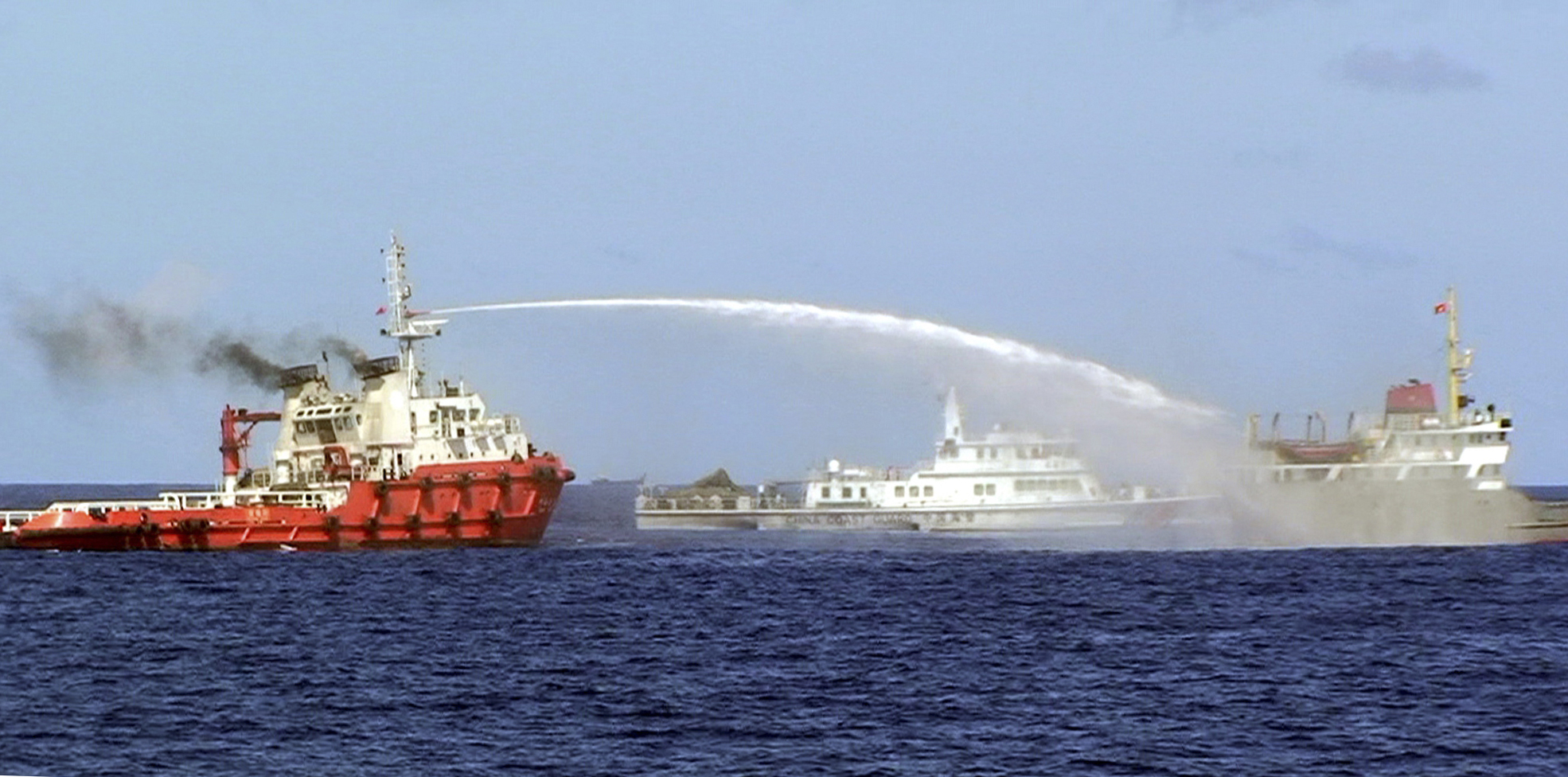
Supposedly fraternal ties between China and Vietnam failed to keep hostilities from bubbling to the surface this week, when vessels from both nations tangled near a Chinese oil rig that Hanoi claims is planning to illegally drill into the country’s continental shelf.
At least six people were injured during the skirmish on May 7, after Chinese vessels used water cannon on, and rammed into, Vietnamese craft that Hanoi had dispatched to prevent drilling from going ahead.
The deep-sea drilling platform is currently in the middle of fiercely contested waters south of the Paracel Archipelago, which is claimed by Vietnam, but has been occupied by China since its forces violently expelled a garrison stationed there by the old South Vietnamese regime in 1974.
According to Vietnamese officials, approximately 80 Chinese ships, including several naval vessels, are accompanying the rig. Displaying unusual openness, authorities in Hanoi held a press conference on Wednesday, where they showed foreign journalists video evidence of the naval encounter.
“Our maritime police and fishing protection forces have practiced extreme restraint,” Ngo Ngoc Thu, vice commander of Vietnam’s coast guard, told reporters during a press conference in Hanoi, according to the Associated Press. “We will continue to hold on there. But if [the Chinese ships] continue to ram into us, we will respond with similar self-defense.”
The weekend’s incident is the most violent confrontation to erupt between the socialist neighbors since a brief naval engagement in 1988 near the Spratly Islands left more than 60 Vietnamese sailors dead.
China has long-held claims over most of the South China Sea — in areas that are also claimed by Vietnam, Malaysia, Brunei and the Philippines — but in recent years has become far more assertive in pursuing its territorial ambitions.
A strongly worded column in China’s Global Times newspaper on Tuesday stated that China should give Vietnam the “lesson it deserves.” The rhetoric closely mirrors the threat made by former Chinese Premier Deng Xiaoping ahead of the People’s Liberation Army’s disastrous invasion of Vietnam in 1979.
“The moment of confrontation has arrived,” Jonathan D. London, a professor and Vietnamese scholar at Hong Kong’s City University, told TIME.
“We’re shifting from an extended period in which Beijing has asserted very grandiose claims over these maritime areas to a stage in which Beijing is taking concrete measures to enforce these claims.”
On Wednesday, the U.S. State Department condemned China actions and called on all parties to refrain from “dangerous conduct.”
“This unilateral action appears to be part of a broader pattern of Chinese behavior to advance its claims over disputed territory in a manner that undermines peace and stability in the region,” said State Department spokesperson Jen Psaki in a statement released Wednesday.
Vietnam’s ruling Communist Party is now faced with the delicate task of confronting China over the issue — doing so with sufficient assertiveness to placate nationalist anger at home, and yet not risk all-out enmity with the country’s biggest trading partner.
“It’s not just a matter of the claims being important in themselves, but I think it’s because they involve contention with China that they are particularly important from a Vietnamese perspective, ” Tim Huxley, executive director of the International Institute for Strategic Studies’ Asia office, told TIME. “I think it’s true to say this resistance to Chinese domination has historically been an important factor in the forging of Vietnam’s sense of nationhood.’’
Meanwhile, Beijing appears to be holding firm on its current course of action.
In another forceful column Wednesday, the Global Times warned countries in the region from hoping that the U.S. could serve as a “big daddy” in any future conflict in the region. “China has more confidence than ever to face the U.S. in the South China Sea chessboard,” it warned.
The publication of the column comes more than a week after U.S. President Barack Obama concluded a four-nation trip to the region. While in the Philippines, President Obama signed the Enhanced Defense Cooperation Agreement with Manila that will allow U.S. forces to increase their presence in the country.
More Must-Reads from TIME
- Cybersecurity Experts Are Sounding the Alarm on DOGE
- Meet the 2025 Women of the Year
- The Harsh Truth About Disability Inclusion
- Why Do More Young Adults Have Cancer?
- Colman Domingo Leads With Radical Love
- How to Get Better at Doing Things Alone
- Michelle Zauner Stares Down the Darkness
Contact us at letters@time.com